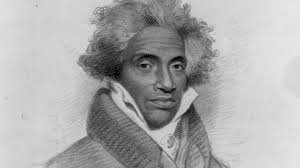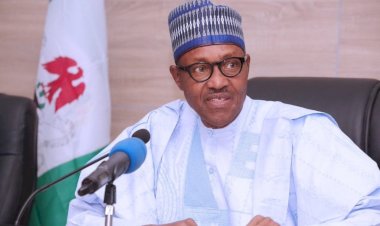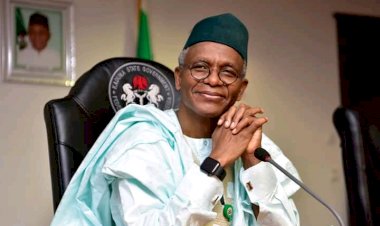THE FULANI PRINCE & THE AFRICAN AMERICAN REVOLUTIONARY

Amir Abu Husayn Abd’r-Rahman ibn Ibrahim Sori & the Hon. David Walker:
by Hei Xuanfeng
An example of the survival of Turudbe’ Fulani descendants of Abraham in the ‘diaspora’ of America was Abu al-Husayn Abd’r-Rahman ibn Ibrahim Sori from Timbo, whose father, Karamoko Ibrahim Sori, consolidated the Islamic confederation of Futa Jallon in 1776. He too was learned in the Islamic sciences and could speak at least 4 different African languages along with Arabic. 1

In 1781, after returning from study in renowned city of learning, Timbuktu, Abd’r-Rahman joined the armies of his father. He was made the Amir of one of the regiments that conquered the Bambara ruler. 2
In 1788 at the age of 26 Ibrahim Sori appointed his son, Abd’r-Rahman to head a 2000 man strong army to the coast to protect and strengthen their economic interest. It is clear that the Almamy Ibrahim Sori was preparing his son for leadership. It was during this military campaign that Abd’r-Rahman was captured.
He was sold to the French who brought him to Natchez, Mississippi. Abd’r-Rahman remained a slave for more than thirty-eight years before he was freed from bondage. 3
Again, like Ayyub ben Sulayman, it was Abd’r-Rahman’s knowledge of Arabic language that won him his freedom. His linguistic abilities and erudition, bequeathed by the high civilization of the Turudbe’ literary traditions guaranteed him his freedom and self-determination.
Thus, Arabic was the constituent element of the cultural personality of Abd’r-Rahman that he utilized in his quest for independence. Without this he would not have had any recourse to define himself vis-à-vis his oppressors and captors. His Arabic writing says to his European Christian captors: “I AM what I AM. And what I AM is what ALLAH made me. I AM not what you attempted to make me!”
The ability to speak, write and understand Arabic language for enslaved African Muslims had political implications that determined the nature of their enslavement or their eventual liberty. They were set apart because of their linguistic independence and the countless of African Arabic manuscripts discovered in the western hemisphere confirms their distinction and their desire to be free.
Perhaps no cultural ingredient that binds a people together cohesively is more important than linguistic unity. Through language a people can assert its values using its own internal reference. Through language unanimity, people define themselves, their universe and project themselves and project themselves into the future.
More importantly language allows a people to defend themselves against cultural aggression of all sorts. The measure of their enemy is defined using their own frame of reference and the diameter of their struggle defensively precludes any encompassing by the dogma of their enemies.
One of the most effective tools utilized by the Turudbe’ enslaved Muslims in the United States was the religious license of taqiyya (dissimilation). This religious stratagem is a license to pretend to renounce Islam with the tongue, while maintaining firm belief in the heart, for a Muslim who may feel his life is in danger or who desires to be freed from the bondage of the disbelievers.
Allah ta`ala revealed the following verse regarding taqiyya: “Whoever disbelieves after his faith, except the one who is forced while his heart is tranquil in belief, however the one who manifest disbelief upon them is anger from Allah and they will taste a grievous punishment.” 4
Abd’r-Rahman took advantage of this same license when his enslavers made conversion to Christianity one of the prerequisites for his freedom.
In 1828 while in Philadelphia he was compelled to write down the ‘Lords Prayer’ in Arabic as a testimony of his new ‘faith’. And as the above manuscript demonstrates, Abd’r-Rahman wrote down the first chapter of the Quran called al-Faatiha, as a subterfuge to gain his freedom. [FIGURE 2]
The choice of Amir Abd’r-Rahman to write down the first and most important chapter of the Quran instead of the ‘Lord’s Prayer’, was not only the essence of taqiyya, but it was an act of defiance as well as a clear demonstration of his disdain for his European captors. The former amir was transmitting the methodology essential for effectively dealing with oppressors.
For more than three years, Abd’r-Rahman was conducted around the east coast of the United States in order to raise the money for his journey back to Africa and to raise money for the manumission of his wife and children.
According to Robert Dannin, Abd’r-Rahman was firm in his Islamic beliefs despite attempts to convert him to Christianity. It is important at this point to cite Robert Dannin’s seminal work, where he describes the persistence of Abd’r-Rahman’s Turudbe’ adherence to Islam.
“Upon his arrival in Washington, [Abd’r-Rahman ibn] Ibrahima became a ward of the American Colonization Society, a Methodist-dominated organization that was planning to send missionaries to Africa…for [Abd’r-Rahman ibn] Ibrahima soon embarrassed his sponsors by stirring religious controversy everywhere. He relished the opportunity to question Christianity by arguing with religious leaders and insisted that Islam was the only true religion.
Word of his notoriety spread, provoking local churches to retract their welcome and forcing him to lecture either outdoors, as he did in Niagara Falls, or in the Prince Hall lodges in Boston, Hartford, and Providence.
Among freemen and slaves in his audiences, [Abd’r-Rahman ibn] Ibrahima’s attitude, as well as his exotic appearance, inspired more than passive curiosity. Some began to recall their own Islamic religious backgrounds. Several publicly reclaimed their African-Muslim names, invoking the wrath of local whites, who branded them as imposters.” 5
This is significant, because this demonstrates that this Turudbe’ Muslim performed the same function that his ancestors before him performed throughout the Bilad’s-Sudan. Here, even under enslavement, the descendants of the Turudbe’ remained true to their covenant of a spiritual commitment to be leaders and guides for the righteous. There were perhaps other earlier examples of Islamic invitation, however, this is the first recorded example of the active Islamic Call being initiated in the United States.
Just as the Hebrew Prophets persisted in reminding its People of their former ‘covenant’ during the period of bondage in Babylon, Abd’r-Rahman ibn Ibrahima, eloquently reminded the enslaved and colonized Africans of their former Islamic covenant and sacred Way of Life. Robert Dannin goes on to describe the significance of Abd’r-Rahman’s impact upon the struggle for freedom for Africans in the United States.
“[Abd’r-Rahman ibn] Ibrahima’s legacy of exclusion from the church pulpit and his affirmation of African-Islamic identity was one of the first publicly documented manifestations of unchurched autonomy. Shortly before sailing for Africa in 1828, [Abd’r-Rahman ibn] Ibrahima addressed a meeting at Boston’s African Lodge. Upon his arrival, he was honored by a fraternal committee led by David Walker, the young abolitionist thinker.
Escorting the old Muslim through the crowd of black New Englanders who had come to bid him farewell, Walker seemed deeply affected by the old man’s resiliency after four decades in slavery. Pushed out of the church into the lodge halls, he had stimulated a collective African memory among his constituents, foreshadowing a collective space for black revolt, which found its first genuine voice in Walker’s manifesto of liberation.” 6
It was one year later that David Walker composed his famous Appeal to the Colored Citizens of the World, calling enslaved and free Africans alike to take up arms in defense of their freedom. Thus, the first documented and published call to freedom and liberation for Africans in the United States was influenced by a Turudbe’ Muslim former ruler.
Abd’r-Rahman manifested the Abrahamic covenant of commanding the good and forbidding evil. He remained true to the Call of Abraham and acted as a Reminder to a African people who had been cut off from their culture and heritage and a proof against the Anglo-American hypocrites. Abd’r-Rahman made scathing attacks against the Anglo-Americans and their hypocrisy in establishing the ‘good principles’ in the Bible. He said:
“I tell you the Testament very good law; you no follow it; you no pray often enough; you greedy after money…you want more land, more neegurs; you make neegur work hard, make more cotton…Where you find dat in your law?” 7
This disparagement by the Turudbe’ son of Abraham of Anglo-American hypocrisy and injustice is a reflection of the responsibility Allah commissioned the Umma of Muhammad, may Allah bless him and grant him peace. Allah ta`ala says:
“You are the best community which has emerged for mankind. You command the good and forbid indecency and believe in Allah. If only the People of the Book would believe it would be better for them. Some of them believe while most of them are corrupt.” 8
There is no wonder that Walker was so furious in his attacks against the Anglo-American Christians. The radical influence that the Turudbe’ son of Abraham had upon Walker can be seen throughout his Appeals:
“The Pagans, Jews and Mahometans try to make proselytes to their religions, and whatever human beings adopt their religions they extend to them their protection. But Christian Americans, not only hinder their fellow creatures, the Africans, but thousands of them will absolutely beat a coloured person nearly to death, if they catch him on his knees, supplicating the throne of grace.
This barbarous cruelty was by all the heathen nations of antiquity, and by the Pagans, Jews and Mahometans of the present day, left entirely to Christian Americans to inflict on the Africans and their descendents, that their cup which is nearly full may be completed!” 9
This contemptuous attack upon the self-image of the Anglo-American Christian as being morally decrepit, is significant, and could not have come about except through a profound since of historical conscience and continuity. Walker’s ability to redefine his oppressors in an inferior light had to be placed up against a self-esteem engendered through his encounter with the elderly Turudbe’, Abd’r-Rahman.
Walker’s revolutionary ideas had become shaped and inspired by one of the ‘lost children of Abraham’, who was decidedly aware of himself as a servant of Allah, a descendent of African royalty and an heir of the Abrahamic covenant.
Thus, it was Abd’r-Rahman’s adherence to the Turudbe’ Fulani identity construct that helped launch a cultural revolution that effected the entire African population of the United States. Walker had this to say as a prayer for his Turudbe’ Muslim guest:
“Our Worthy Guest, who was by the African;s natural enemies torn from his country, religion, and friends, and in the very midst of Christians, doomed to perpetual though unlawful bondage may God enable him to obtain much of the reward of his labor, as may purchase the freedom of his offspring.” 10
On February 7, 1829, Abd’r-Rahman sailed on the Harriet accompanying, Joseph J. Roberts, the future first president of Liberia. 11
One can but wonder about the dialogue between these two great leaders. Did Amir Abd’r-Rahman influence the future president of Liberia in his desire for freedom and independence?
It is amazing how the most important dignitaries in the history of the freedom of African Americans have had some encounter with ‘the lost children of Abraham’. Abd’r-Rahman attempted to reach Timbo, but died before reaching his goal on July 6, 1829. When he died, he bequeathed his Arabic manuscripts to the Turudbe’ scholars and jurist of Timbo. 12
There has been this on-going myth among the African American Muslim national minority that during the four centuries of enslavement and domestic colonization that no one from the African continent came to redeem us from slavery or to teach us Islam.
However, the reality is that there was never a period in American history that Islam was not a part of our historical development. Whether it was enslaved Fulani Turudbe, such as Amir Abu Husayn Abd’r-Rahman ibn Ibrahim Sori, Umar ibn Sayyid, Ayyub bin Sulayman, Muhammad Sambo, Bilali Muhammad and others who kept alive the African traditions of Islam; or whether African Muslims in America hid themselves underneath the secretive curtain of Black American masonic groups; or whether they were the dedicated students of African Muslim immigrant proselytizer at the turn of the century, such as Imam Muhammad Satti Majied of the Sudan or Duse Mohammed Ali of the same country; there was always a period in which Islam was impacting the lives of the African American national minority.
FOOTNOTES
1. Allan Austin, African Muslims in Antebellum America: Transatlantic Stories and Spiritual Struggles, (New York, Routledge), 1997, p. 126.
2. Terry Alford, Prince Among Slaves: the True Story of An African Prince Sold into Slavery in the American South, (New York, Oxford University Press, 1977), pp. 16-18.
3. Ibid. p. 72.
4. Quran: 16:105.
5. Robert Dannin, Black Pilgrimage To Islam, (Oxford, Oxford University Press, 2002), p. 20.
6. Ibid. p. 21.
7. Allan Austin, p. 129.
8. Quran: 3:109.
9. David Walker, Appeal to the Colored Citizens of the World, (Boston), p. 28.
10. Op.Cit, p. 164.
11. Ibid., p. 77.
12. Ibid.
SOURCE:
The Lost & Found Children of Abraham in Africa & the American Diaspora:
https://www.academia.edu/8092379/The_Lost_and_Found_Children_of_Abraham_In_Africa_and_the_American_Diaspora

















































